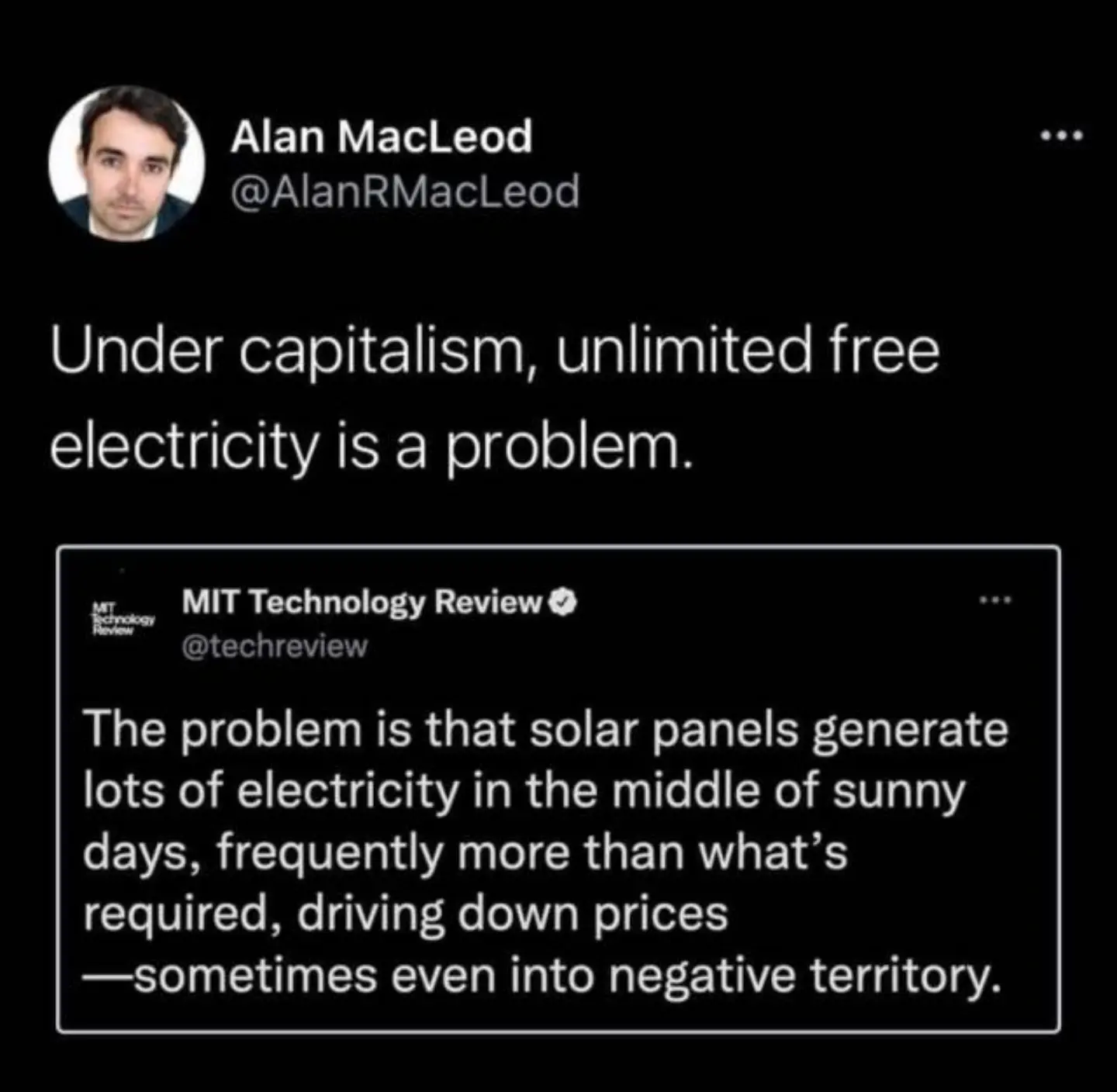this post was submitted on 09 Apr 2024
1660 points (96.0% liked)
Solarpunk
5589 readers
60 users here now
The space to discuss Solarpunk itself and Solarpunk related stuff that doesn't fit elsewhere.
Join our chat: Movim or XMPP client.
founded 2 years ago
MODERATORS
you are viewing a single comment's thread
view the rest of the comments
view the rest of the comments

Why?
I'm not doubting you, I'm just a big curious nerd
In an ideal picture, ground isn't where energy gets dissipated
there's no such thing as "dumping energy to ground" (or if you prefer, everything is "dumping energy to ground").
If ground dissipates significant energy, this has all sorts of Very Bad implications. For starters, the ground can no longer be at uniform potential if it dissipates
so now we have a ground that isn't actually at ground! (This just follows from Ohm's law.)
Another way of stating this is to imagine what sort of circuit you need to "dump energy to ground." This is probably just a wire connecting hot to ground
but what happens if you do this in your home, i.e., plug a wire from hot to ground (please do not do this!)? It gets really, really hot, and will probably either throw the breaker, melt, or start a fire. The reason it gets hot is because it's the wire that dissipated the energy.
Ok. So the reason the wire gets hot is because it has finite resistance. So what if we choose an imaginary superconductor instead? Well, now we're trying to draw infinite power, which is bad! In practice of course it won't be infinite, and will be determined by the resistance of the power lines feeding it. But remember that wire that got really hot? Now we're treating the power lines that way. So this is really not good, and besides, we wanted to use a controlled amount of power, which this clearly isn't.
So, we can be smarter here and add some resistance to our load
instead of a wire from hot to ground, we now have maybe a coil of low-but-finite resistance wire. This works great, and it's just a resistive heater.
The problem isn't dumping energy at a human scale (e.g., an individual space heater)
the problem is when you have excess power on an industrial scale.
If all the energy is actually being released by the wire through resistance, then why's the potential of the ground changing?
The potential at the ground isn't (or shouldn't) be changing
which is the same thing as saying the power isn't being dissipated in the ground. So the power isn't being "dumped to ground," it's being dumped through the wire.
So basically, two options: 1) you dissipate power in the load, which is what should happen, and everyone is happy. 2) you dissipate power across your ground, which means ground is no longer really ground, and all sorts of nasty and dangerous things can happen.
Does lightning cause those nasty things to happen?
I think so. A huge amount of energy is now trying to get to ground. Power will now be dissipated across the ground (so, from the lightning rod to the earth). This is bad ("ground" is no longer at ground potential everywhere), but probably not as bad as the alternative.
I think one way to think about it is that, ideally, ground is a single point in a circuit that is defined to be at zero potential, always. Anything that appreciably violates this assumption causes bad things to happen, though often the bad things are subtle/not that bad (e.g., your guitar amp starts buzzing more than you want).